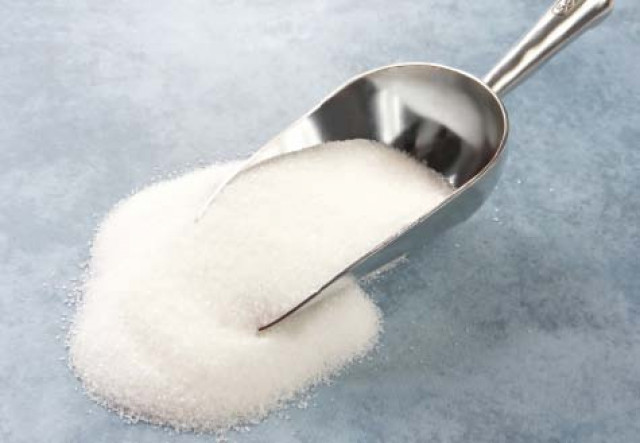Cartels blamed for hike in flour, sugar prices
Cabinet members voice concern over inaccurate data of wheat production, shortfall

Prices of wheat flour and sugar have surged during the tenure of current Pakistan Tehreek-e-Insaf (PTI) government as millers are operating like a cartel.
The government has held cartels of flour and sugar millers responsible and has initiated inquiries. However, as soon as the probe started, prices of wheat flour and sugar started jumping up.
Prime Minister Imran Khan and cabinet members were informed in a meeting held on October 6 that prices of wheat flour and sugar had risen significantly during the tenure of current government, which came to power in August 2018.
During discussion, Minister for Planning, Development and Special Initiatives Asad Umar drew attention of cabinet members to the high inflation rate measured by the Sensitive Price Indicator (SPI), especially prices of food items.
Outlining the price trend of two essential food items - sugar and wheat flour, Umar said sugar price stood at Rs55.84 per kg in August 2018 and by the end of September 2020, it had risen to Rs96.62 per kg, which was a tremendous burden on an average citizen.
Similarly, the price of wheat flour, a staple for the common man, had increased 53% compared to August 2018.
Cabinet members voiced concern over presentation of inaccurate data on the country’s wheat production and expected shortfall, which jeopardised effective decision-making and slowed down the implementation of cabinet’s directives for wheat import through the public sector.
They underlined the need for assurances from relevant stakeholders that envisaged imports had been timely executed.
The minister for national food security and research apprised the cabinet that against wheat harvest target of 27 million tons, the output was 25.2 million tons, causing a shortfall of 1.8 million tons. It was in that backdrop the government decided to import wheat through the private as well as public sector, the minister said. The private sector has so far imported 430,000 tons of wheat whereas another 660,000 tons are in the pipeline.
In the public sector, the Trading Corporation of Pakistan (TCP) has so far taken in 630,000 tons and the process for import of another 180,000 tons from Russia, on a government-to-government basis, was under way.
The imported wheat, along with upcoming imports, would bring national stocks to comfortable levels and stabilise prices of wheat flour in the market, the cabinet was told. For the new wheat plantation season, it was suggested, early announcement of a reasonable support price would incentivise farmers and help meet the targeted production. The National Food Security and Research Division would present a summary to the Economic Coordination Committee (ECC) next week.
It was stressed that in addition to the timely announcement of support price, availability of di-ammonium phosphate (DAP) fertiliser and quality seeds at competitive prices should be ensured for this year’s Rabi sowing season.
It was also emphasised that 80:20 ratio for wheat flour and wheat should be ensured to enhance flour production in the country.
The special assistant to the prime minister on climate change informed the cabinet that in view of changing weather patterns, a pilot smart agriculture project was being launched in consultation with the National Food Security and Research Division.
Endorsing the initiative, the cabinet asked the minister for food security to prepare a five-year agricultural plan and present it to the forum in one month.
It also directed the food security ministry to ensure timely announcement of wheat support price as well as availability of DAP and quality seeds at competitive prices to promote wheat production. The cabinet gave directive for taking up the matter of 80:20 ratio for wheat flour and wheat with mills and provinces to enhance flour production.
Published in The Express Tribune, October 14th, 2020.
Like Business on Facebook, follow @TribuneBiz on Twitter to stay informed and join in the conversation.



















COMMENTS
Comments are moderated and generally will be posted if they are on-topic and not abusive.
For more information, please see our Comments FAQ